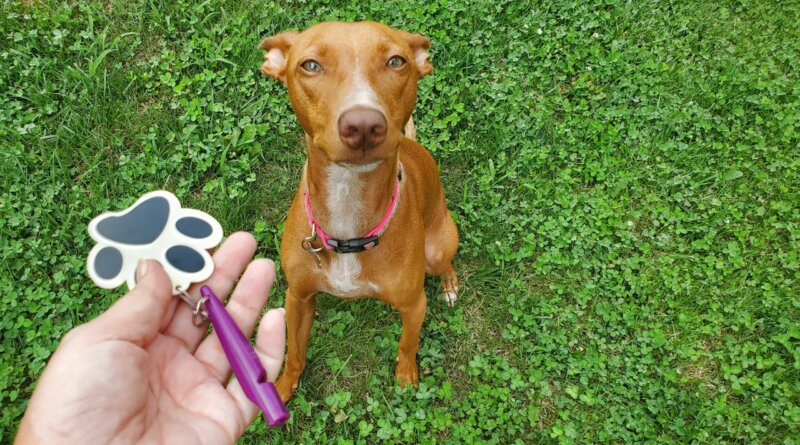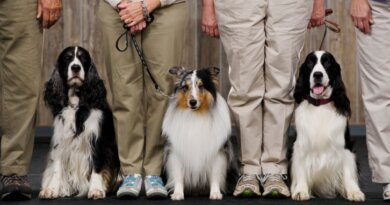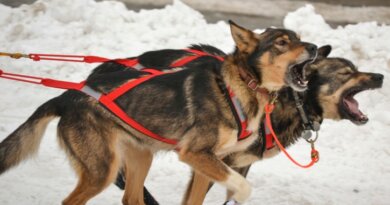What is a Dog Whistle
Disclaimer: If you purchase items through links on our site we may earn a commission.
Dog whistles are great for all types of training but are especially helpful for a rock-solid recall and various dog sports and activities. Dog whistles are used to make communicating with your dog from long distances easier, since the sound carries and can penetrate thick cover, crowd noises and bad weather. These features are all significantly important not only for recall, but also for sports such as agility, herding and hunting and for gun dogs and working dogs.
While dog whistles aren’t as commonly used as other cues or markers, they can be even more effective depending on your needs for training. Choosing the right whistle and knowing how to use it — and how not to lose it — makes all the difference.
What is a dog whistle?
Dog whistles differ from clickers or verbal markers in that whistles are detailed communicators. Depending on what you’d like your dog to do, you might use a variety of sounds, blows and blasts. A long blast might tell the dog to go left or right, where two short blasts might mean stop. Whistles also differ from clickers and markers because whistles are attention-getters. They signal the dog to do something while clickers and verbal markers mark the behavior once it’s performed.
There are two main types of dog whistles: silent and audible. Since a dog’s ear is biologically much different (and far superior) to a human ear, they have a much more acute sense of hearing. Choosing the right frequency for your dog is key, as some dogs may be sensitive to higher frequencies. It must work for you, but it also must work for your dog.
Additionally, one of dogs’ many superpowers is they can move their ears independently of one another. Therefore, dogs can be more precise with pinpointing sounds and from different directions and greater distances, which makes whistles ideal for sport, work and long-distance recall.
What is a dog whistle used for?
Darcie Jennings, founder and head trainer at CommuniCanine Training, is a firm believer in the power of the whistle for a rock-solid recall. Darcie says the very first client whose dog she whistle trained went from not responding to verbal cues to responding almost 100% of the time when the whistle blew. She’s introduced whistle recalls to her clients both in private lessons and recall classes ever since.
Darcie emphasizes dogs will respond faster and more consistently when using a whistle as a recall cue than they will to a verbal recall cue only. She says it’s literally a night and day difference. She and her clients primarily use audible whistles and are especially fond of the Acme 210.5, because it’s the most pleasant on the ears and easiest to blow.
How to use a dog whistle for the recall cue
Darcie has the following quick-and-easy tips on how to use a dog whistle for a rock-solid recall.
- Standing right beside your dog, blow your whistle and then immediately feed your dog numerous high-value treats one after another or pull out her favorite tug toy and have a good game of tug.
- Pause for a moment (how long of a pause will depend on where the dogs’ attention goes when you stop engaging with her): no talking to your dog, no feeding or playing with her; you’re just boring.
- Then blow the dog whistle and feed or play again.
- Repeat 10 to 20 times.
- Once your dog is visibly responding excitedly to the whistle (it may take more than 10 to 20 reps for some dogs) start adding distance between you and your dog, a few feet at a time, so that when you blow the whistle she comes back to you to get the treat.
For us humans, it can be challenging to remember to bring your whistle with you or you might end up losing it. So here are Darcie’s pro tips to be sure you’ve always got one handy:
- Keep it on your car key ring
- Attach to your dog’s leash with a key ring or carabiner
- Use a lanyard
- Attach to a zipper pull of your hoodie/jacket
- Use the built-in keyring on your backpack
When not to use a dog whistle
At the end of the day, dog whistles aren’t for every dog. Some dogs may respond fearfully to them, so take care to watch your dog’s reactions in a trial with various types. Darcie says for more sensitive dogs it sometimes may take just a bit more time to desensitize them to where they’re happy to hear the sound. Try softer blows, shorter blasts or a different whistle altogether. Dog still not having it? Then maybe a whistle isn’t right for your dog.
And dog whistles aren’t an effective or proper tool for suppressing behaviors like excessive barking. Instead, you’d want to figure out the underlying causes for the excessive vocalizations and address those emotional needs instead. Besides, if you end up using the whistle as a punishment (i.e., for barking) you could end up poisoning the whistle, and your dog won’t want to respond to it.
How to use a dog whistle for working or sporting dogs
Allyson Tohme, UK Kennel Club Instructor in Working Trials (Advanced) says whistles are unmatched when you need to communicate with your dog out of sight as the sound travels much further than the human voice. And whistles are consistent, unlike the human voice which can vary depending on health or mood.
Versatility makes whistles especially useful for sport since the handler can be quite a distance from the dogs and still communicate clearly and effectively. And if many handlers are using whistles, you can help your dog distinguish which cues to respond to by using different tones, sounds and even frequencies.
Allyson says her favorite is the shepherd’s lip whistle because it’s far more versatile than all the others which have a single pitch, and you can only vary the number and/or length of “pips.” You can actually play tunes on the lip whistle, so you have far more potential cues at your disposal than is possible with other whistles.
And although she doesn’t prefer one brand over another, she does say Acme produces the entire gamut of whistles and are inexpensive if you need to replace a lost or damaged one.
In her experience with various dog breeds in various contexts, Allyson hasn’t found any certain breeds to be more responsive to a dog whistle than others.
Allyson’s quick-and-easy tips on how to use a dog whistle are:
- Train the verbal cue first, then the whistle and then the hand signal.
- Once the dog is responding to the verbal cue, precede the verbal cue with the unknown cue (whistle).
- Wait one second then use the verbal cue.
- It usually takes only a maximum of six sessions before the dog is anticipating the whistle will be followed by the verbal cue so the latter can be faded.
- Extend the distance incrementally so all three cues may be used interchangeably depending on what is more appropriate for the context and, of course, if the dog is looking at you or not (essential for a hand signal to be appropriate)!
If you really want to talk to your dog, try a whistle. You can develop your very own language and then take it to the streets in agility, herding or even when you need to break out your best recall. Their versatility, flexibility and cost-effectiveness make dog whistles a must-try for any pet parent or handler.

Best dog whistles to buy
Acme brand is often the top choice, known for producing a variety of types, softer sound, being inexpensive and widely available, even at Walmart.
Other popular brands, many of which are also available on Amazon, include:
• SportDOG
• Fox
Videos on how to use a dog whistle
Are you more of a visual learner? Check out these videos on how to use a dog whistle in various situations.





Some really rattling work on behalf of the owner of this site, utterly great subject matter.